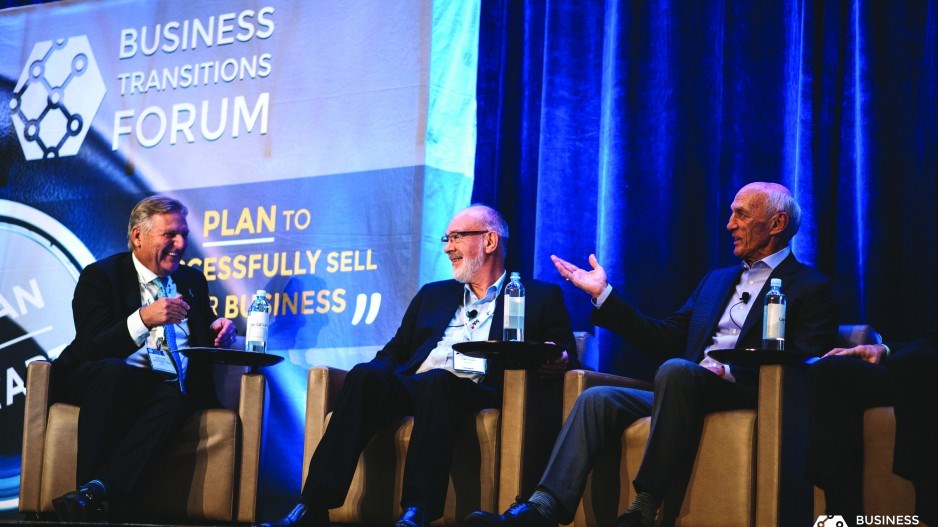John Zaplatynsky knew it was time to sell his ownership in GardenWorks, the business he’d co-founded in 1984.
Like many boomers, he wanted more opportunities with family and for travel and reconnecting with friends. But he also wanted to avoid the dreaded seller’s Monday-after syndrome. “It would have been very difficult to wake up Monday morning and say, ‘Oh my God, what do I do now?’” Zaplatynsky says.
Zaplatynsky didn’t just walk out. Instead, he followed a carefully thought-out two-year plan. He sold 53 per cent of his interest in GardenWorks, became company chairman and stayed involved in the wider industry, while gaining the personal time he’d sought.
Zaplatynsky’s experience should hearten business owners thinking of selling – but worried about how to go about it. And with statistics showing up to 75 per cent of businesses fail to be sold successfully, owners have good reason to be cautious, says Dave Tyldesley, vice-president of the forum’s producer, Cube Business Media Inc.
Zaplatynsky’s advice? Decide on your date of departure – or semi-departure, as the case may be – two years ahead. “That gives you a pretty reasonable timetable. I basically sat down and documented all of the things that I did and all of the issues we needed to worry about in terms of the company going forward. And then my four partners and I met, talking about the progress and the hand-off responsibilities.”
Zaplatynsky timed his ownership exit for August, the end of GardenWorks’ fiscal year and also the slowest business time of year. With his family he then went on an African safari.
Brian Hurl, former owner of Foley’s Candies
Brian Hurl loved being an entrepreneur, and why wouldn’t he?
The Vancouver-based businessman essentially bought a chocolate factory in 2006. But the owner of Foley’s Candies, which sells bulk chocolate to retail grocery stores, bakeries and other food businesses, was faced with a life-altering choice two years ago.
“A health scare gave me cause to reflect,” says Hurl, 62.
“As much as I like the people I get to work with, the business that I’m in and the customers, there are a lot of things I want to do besides coming to the office at 7 in the morning.”
So in a very short span, Hurl sold his business in June 2016. And despite his affection for the confection business, he couldn’t be happier with his decision.
“For the next few months, I’m going to figure out what it is that I want to do,” he says, adding he plans to travel, ski and volunteer.
A banker for 25 years prior to becoming a chocolate mogul, Hurl was fortunate he had previous experience in business transactions. That also meant he knew enough to know he needed help. He enlisted a team of experts, including a boutique private bank to help attract the right buyers.
“They helped me put together an information package – a teaser – to garner interest from buyers and then we started narrowing them down,” he says.
Within months he had found the right buyer and sold Foley’s to Yellow Point Equity Partners.
OlivIer Vincent, former CEO of Canpages
The former CEO of Canpages, Olivier Vincent understands that selling a business is never simple.
In 2006, he created the successful phone-directory company. Four years later, Canpages had annual revenues of $104 million and was employing 600 people. A year later, Vincent sold it for $225 million.
Although Vincent agrees the sale process can seem daunting at times, the rewards can be great and life changing.
The Parisian-born Vincent came to the table with a wealth of experience in the industry. Over the years, he has founded more than nine companies and startups. He grew Canpages into the second-biggest player in Canada by ramping up Canpages’ online presence, its media and advertising sales and e-commerce capability.
“Although we focused on the online presence, we kept a print product but we made it a lot more affordable,” says Vincent.
Before you start evaluating the worth of your company, Vincent recommends that you have a really good chief financial officer.
“A CFO is your best friend. He/she will give you good numbers for what your revenue and profit numbers can be in the future with no emotion in them,” he says. “Then, make your business desirable, build interest. I did a few interviews to create buzz for Canpages, which generated interest from a number of media companies.”
Vincent cautions against sellers getting too greedy.
“Greed isn’t bad, but being too greedy might result in the loss of a fair sale price,” Vincent adds.
So how does one know when the time is right to sell?
“We felt the business had reached a temporary level of maturity, ” Vincent explains. “And the offer from a strategic competitor was very appealing.”
The Business Transitions Forum returns to Vancouver this fall. For information, visit businesstransitionsforum.com




